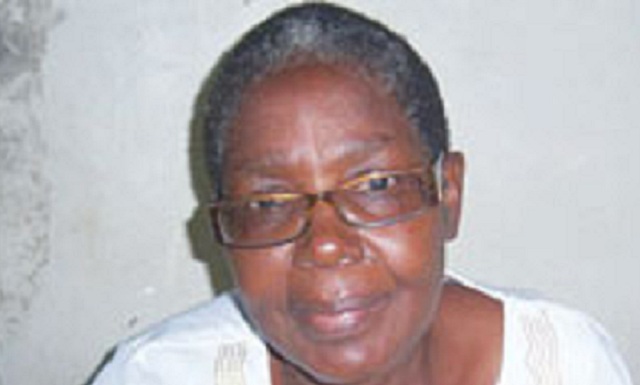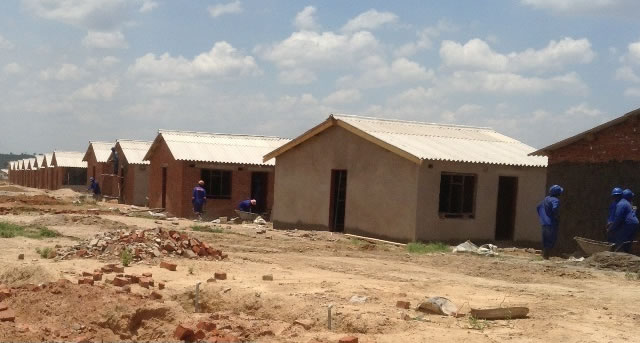Down syndrome: Genetic disorder not myth

Pamenus Tuso
WHEN Feluna Dyavanhu gave birth to a disabled child, the entire community, including friends and some family members, turned her into a subject of ridicule.
The birth of her daughter, who had Down syndrome, was regarded as a curse by many.
“When I gave birth to my disabled daughter, a lot of people started saying a lot of negative things about her.
‘‘Some believed the child was a curse from God, a punishment of some sort for something bad that I had done.
‘‘My daughter and I were discriminated against by society. Shockingly, this discrimination even exists in churches.
‘‘Is the myth around disability that bad?” says Dyavanhu a resident of Bulawayo.
To add to her woes, Dyavanhu’s daughter developed a congenital heart disease at the age of 11 months and she was forced to take her for a major operation at Mpilo Central Hospital in Bulawayo.
Dyavanhu who says she loves her daughter, has for many years been warding off societal prejudices and stigmatisation in her efforts to provide for her daughter.
Dyavanhu says because her daughter depends on her for almost everything, they both face similar traumatic challenges such as stigmatisation and sometimes hostility when trying to access assistance and services.
“The fact that she’s a girl born with a disability, she’s more vulnerable and as a mother I feel insecure to leave her unattended, especially in a place or room that has male figures only.
‘‘I’m a widow but despite my social status, I strive to ensure my daughter feels as comfortable as possible,” she says.
Dyavanhu’s daughter is 18 years old now. She is enrolled at Collegiate Disabled College in Hillside where she is training in livelihoods skills such as chicken rearing and sewing.
Down syndrome is a genetic disorder caused when abnormal cell division results in extra genetic material from chromosome 21.
This genetic disorder, which varies in severity, causes lifelong intellectual disability and developmental delays, and in some people it causes health problems.
The name Down syndrome comes from John Langdon Down, an English physician who published the first accurate description of the syndrome in 1866.
Sibonisiwe Mazula, the coordinator of the Zimbabwe Down Syndrome Association (ZDSA), a private and voluntary organisation working with parents of children living with the condition expressed concern over the discrimination and exclusion of children and parents living with the condition in health and other socio-economic developmental interventions.
ZDSA which provides support and information to parents and families of new born children, youths and adults living with the condition was established in 1984.
“The welfare of people with Down syndrome conditions appears not to be taken seriously.
‘‘Our association has been hit by hard times following the withdrawal of some donors and well-wishers who used to fund the organisation.
All our programmes have ground to a halt due to lack of resources,” said Mazula whose 28-year old daughter also lives with the condition.
Owing to a lack of financial resources, the organisation recently held low key National World Down Syndrome Day commemorations.
The event was largely ignored by the local media, the corporate world and government officials. “We almost cancelled the commemorations this year because of lack of support from partners.
‘‘We’re, however, grateful to one local church which assisted us to raise few resources to at least have something for the affected people and their families,” says Mazula.
The coordinator pleaded for financial assistance to fund some of the organisation’s projects.
“As the coordinator of the organisation, I’m doing voluntary work because the organisation is broke. We haven’t paid our rentals for some time now and it’s by the grace of God that we still exist,” she said.
The organisation is also appealing for financial assistance to resuscitate a now defunct peanut butter making venture meant to empower parents and ZDSA executive members.
“We used to run a thriving peanut butter making venture but production has been suspended. We can’t raise money to buy raw materials and pay the grinders.
‘‘Although this project is viable, it’s not enough to sustain all our expenses which include rentals , salaries and other expenses. We need other projects to complement the peanut butter making venture,” said Mazula.
Through proceeds from the peanut butter making venture, ZDSA used to buy uniforms and pay school fees for a number of children living with the condition.
According to Mazula, during its peak, the peanut butter making venture used to produce 1,980 small bottles of peanut butter per week.
Each bottle was sold for $1, 65.
The coordinator also expressed concern over the shortage of specialised schools for Down syndrome children as well as the high tuition fees charged by the few schools that enrol such children.
“Most good Down syndrome schools are privately run and are very expensive.
‘‘The few affordable schools don’t have adequate and ideal infrastructure for our children.
‘‘We want the government to intervene and avail well-equipped and affordable schools for Down syndrome children,” said Mazula.
Physicians encourage parents with children who have Down syndrome to enrol them in mainstream schools.
However, in Zimbabwe it is very difficult to have children afflicted by Down syndrome in public schools hence many find themselves in schools meant for the disabled such as Ruvimbo and St Giles Rehabilitation Centre.
Mainstream schools help the children to engage in social activities with other children of their age.
Member of Parliament for Bulawayo East, Thabitha Khumalo, who was the only notable high public figure, who graced the low profile commemorations held at a local church, says there is an urgent need to demystify issues of disability in Zimbabwe.
“The issue of disability is a taboo in some countries and as Parliamentarians we need to engage stakeholders such as Zimbabwe National Traditional Healers Association (ZINATHA) in demystifying such issues like Down syndrome.
‘‘We should all realise that all people are God’s people. People living with disabilities are God’s flowers and we need to water and nurse them so that they can bear more fruits for our communities,” said Khumalo.
The legislator said she will continue to lobby parliament for legislation which enables the disabled to claim their rights.











Comments